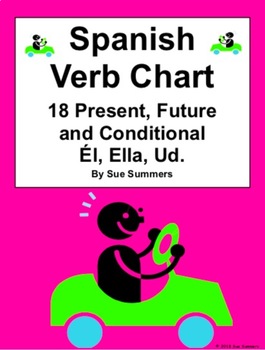
The above sentence implies that the condition that must be met before Benjamin visits his grandma is that she would have to move closer to him. Benjamin would visit his grandmother but she lives in Europe.Benjamín visitaría a su abuela pero ella vive en Europa.In an English sentence in the conditional tense, the helping verb “would” is placed in front of the main verb, which is usually followed by the words “if” or “but.” In the sentences, “I would study if I had my book” or “He would study but he doesn't have his book,” the condition that needs to be met in order for studying to happen is “having a book.” In the following example, you must infer the condition that must be met before Benjamin can visit his grandma. The conditional is used when the action of the verb would happen only if a certain condition were met. Because the future and conditional tenses are created in a similar fashion, it is very easy to learn to conjugate verbs in the conditional tense once you have learned the future tense the meanings of the two tenses, however, are not similar at all. The conditional tense also requires you to use the entire infinitive, only with different endings. For example, the same verbs that are irregular in the future tense are also irregular in the conditional tense in exactly the same way. The conditional tense is usually introduced with the future tense because the two tenses have much in common. Forming the Past Subjunctive: Verb Rules.Past Subjunctive and Sequence of Tenses.

Passive Voice Conjunctions Sentence Variations.Present Subjunctive: Truly Irregular Verbs.Stem‐Changers in the Present Subjunctive.Verbs with Spelling Changes in the Preterit.Stem‐Changing Verbs in the Present Tense.Interrogative Pronouns (Question Words).


 0 kommentar(er)
0 kommentar(er)
